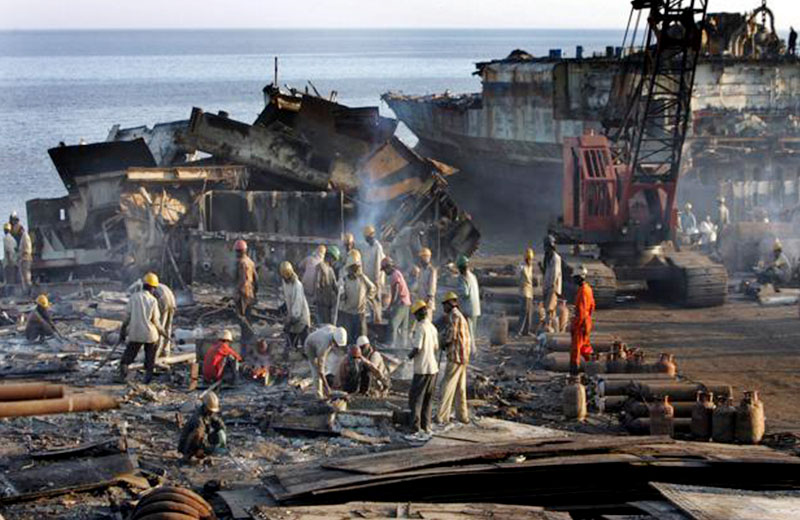The International Maritime Organisation’s (IMO) Hong Kong International Convention for the Safe and Environmentally Sound Recycling of Ships will enter into force in June 2025 as major flag state Liberia and the Government of Bangladesh, heavily pushed by Japan and Norway, have now ratified the Convention fourteen years after its adoption. NGOs warn, however, that its requirements fall short of ensuring ethical, safe and environmentally sound ship recycling and risk undermining existing laws and efforts to reform the sector’s dangerous and polluting practices.
“This international convention rubberstamps shipbreaking on tidal mudflats and ignores labour rights and international rules for hazardous waste management. It will only serve the interests of shipping companies to avoid paying the true cost of sustainable and ethical recycling and undercut efforts to level the playing field for responsible ship recyclers to compete. As it stands, the Hong Kong Convention undermines the overall credibility of not only its own stated objectives, but also that of the IMO,” said, Ingvild Jenssen – Executive Director and Founder – NGO Shipbreaking Platform.
NGOs worldwide, the UN Special Rapporteur on Toxics and Human Rights, the Centre for International Environmental Law and the European Parliament have all exposed the fatal weakness of the Hong Kong Convention’s standards and enforcement mechanisms. Furthermore, the majority of the 191 countries party to the UNEP Basel Convention, which controls the global trade of hazardous wastes, including end-of-life ships, and bans the export of toxic wastes from OECD to non-OECD countries, found that the Hong Kong Convention fails to provide an equivalent level of control to the Basel Convention as it does not prevent the dumping of toxic ships in developing countries.
With its failure to outline robust environmental and social standards for the sound management of the many toxic substances contained in end-of-life ships, the Hong Kong Convention falls short of the Basel Convention and the more recent EU Ship Recycling Regulation. It sets no requirements, beyond compliance with national rules for the management of hazardous wastes downstream. It endorses beaching, a practice long associated with pollution and health hazards for both workers and local communities. It also lacks provisions to protect workers engaged in shipbreaking operations, who often face precarious work environments, lack of protective equipment and limited access to medical facilities.








